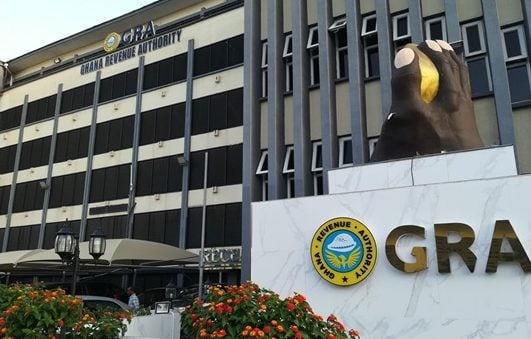The Ghana Revenue Authority (GRA) has vehemently refuted allegations leveled against them by the Importers and Exporters Association of Ghana (IEAG) concerning the auctioning of perishable goods at the nation’s ports. The IEAG had accused Customs officials of circumventing due process in these auctions. The GRA, however, maintains that its operations are strictly guided by the Customs Act, 2015 (Act 891), a comprehensive legal framework governing the handling of all cargo, both perishable and non-perishable. This framework, according to the GRA, provides clear guidelines and procedures for handling goods, ensuring transparency and accountability in all transactions. The statement underscores the GRA’s commitment to upholding the rule of law in all its operations.
Central to the GRA’s defense is Section 53(3)(a) of the Customs Act, 2015. This specific provision empowers a designated Customs official, referred to as a “Proper Officer,” to initiate the auctioning process for perishable goods that remain uncleared after 21 days. This 21-day timeframe, the GRA emphasizes, is distinct from the regulations governing motor vehicles, which are granted a 60-day window for valuation and clearance under Sections 55, 57, and 59 of the same Act. The GRA explicitly states that associating the 60-day clearance period for motor vehicles with perishable goods is a misinterpretation of the law. The clear distinction between these two categories of goods, as stipulated by the Act, underscores the legality of the GRA’s actions, according to their statement.
The GRA further encourages importers to utilize the pre-cargo arrival clearance system. This system allows for the settlement of duties and taxes before the goods arrive in Ghana. By adopting this proactive approach, importers can significantly reduce delays and potential losses, while also streamlining the overall clearance process. This system offers a more efficient and cost-effective way for importers to handle their shipments, minimizing the risk of goods becoming subject to auction due to delays in clearance. The pre-arrival clearance mechanism benefits both the importers and the GRA by reducing administrative burdens and ensuring a smoother flow of goods through the ports.
Addressing the IEAG’s claims directly, the GRA reiterated that the auctioning of perishable goods is not only legally permissible but also necessary to mitigate a range of negative consequences. These include the prevention of spoilage, which can lead to significant financial losses for importers and pose potential health risks. Furthermore, the timely auctioning of perishable goods helps prevent congestion at the ports, ensuring the efficient flow of goods and maintaining the smooth operation of the port facilities. The GRA argues that these measures are crucial for protecting public health and ensuring the smooth functioning of the country’s trade infrastructure.
The GRA concludes its statement by reaffirming its commitment to adherence to all relevant customs laws and procedures. The Authority underscores its dedication to upholding core values of fairness, integrity, responsiveness, service, and teamwork in all its operations. This statement serves as a reassurance to importers and the general public that the GRA operates within the confines of the law and prioritizes ethical conduct in its dealings. The Authority emphasizes its commitment to serving the interests of both the trading community and the nation as a whole.
This exchange between the GRA and the IEAG highlights the ongoing tension between trade associations and Customs authorities regarding issues such as clearance timelines, duty payments, and auction procedures. The GRA’s robust response underscores its determination to enforce existing regulations while also emphasizing the importance of utilizing available systems to streamline the import process. This ongoing dialogue between stakeholders is crucial for refining trade practices, ensuring regulatory compliance, and promoting a more efficient and transparent trading environment in Ghana. It is expected that further discussions and clarifications will continue to take place to address the concerns raised by the IEAG and other stakeholders, ultimately contributing to a more harmonious and effective trade ecosystem.














